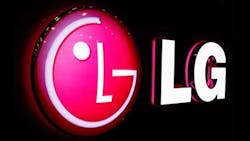Electronics Giants Receive Record Fine for Decade-long Cartel
BRUSSELS -- European Union anti-trust authorities announced Wednesday a record fine for running a cartel, ordering seven companies including LG Electronics (IW 1000/87) and Philips (IW1000/149) to pay nearly 1.5 billion euros US($1.9 billion) for jacking up the prices for TVs and computer screens for a decade.
"It's the biggest fine for a cartel decision" by the EU executive, said Competition Commissioner Joaquin Almunia.
A European Commission spokesman confirmed that the penalty was the biggest since a 1.38-billion-euro 2008 fine for a car glass cartel.
One cartel concerned tubes used for televisions and the other those for computer monitors. Both operated worldwide.
The companies involved include household names such as LG Electronics, Philips and Samsung (IW 1000/15), in both cartels, plus Panasonic (IW 1000/31), Toshiba (IW 1000/38), and Technicolor (formerly Thomson) in the TV end.
The Taiwanese company Chunghwa was granted complete immunity and not fined as it disclosed the cartel to regulators.
The companies colluded, the Commission concluded, to fix 50%-70% of the price of these screens.
"The European Commission has fined seven international groups of companies a total of 1,470,515,000 for participating in either one or both of two distinct cartels in the sector of cathode ray tubes," said a statement.
"For almost 10 years, between 1996 and 2006, these companies fixed prices, shared markets, allocated customers between themselves and restricted their output," the Commission said.
Almunia added: "These cartels for cathode ray tubes are 'textbook cartels': they feature all the worst kinds of anti-competitive behavior that are strictly forbidden to companies doing business in Europe."
The case goes back to a November 2007 raid.
The executives and managers of the companies held meetings in a number of countries across Asia and Europe and often sealed their decisions on golf courses, said the Commission.
It added that the investigation showed the companies knew that what they were doing was illegal.
"In a document found during the Commission's inspections, a warning goes as follows: 'Everybody is requested to keep it as secret as it would be serious damage if it is open to customers or European Commission'," said a Commission statement.
The industry has already moved away from cathode ray tubes to make TV and computer, having embraced liquid crystal (LCD) or light emitting diode (LED) technology.
Copyright Agence France-Presse, 2012
About the Author
Agence France-Presse
Copyright Agence France-Presse, 2002-2025. AFP text, photos, graphics and logos shall not be reproduced, published, broadcast, rewritten for broadcast or publication or redistributed directly or indirectly in any medium. AFP shall not be held liable for any delays, inaccuracies, errors or omissions in any AFP content, or for any actions taken in consequence.
